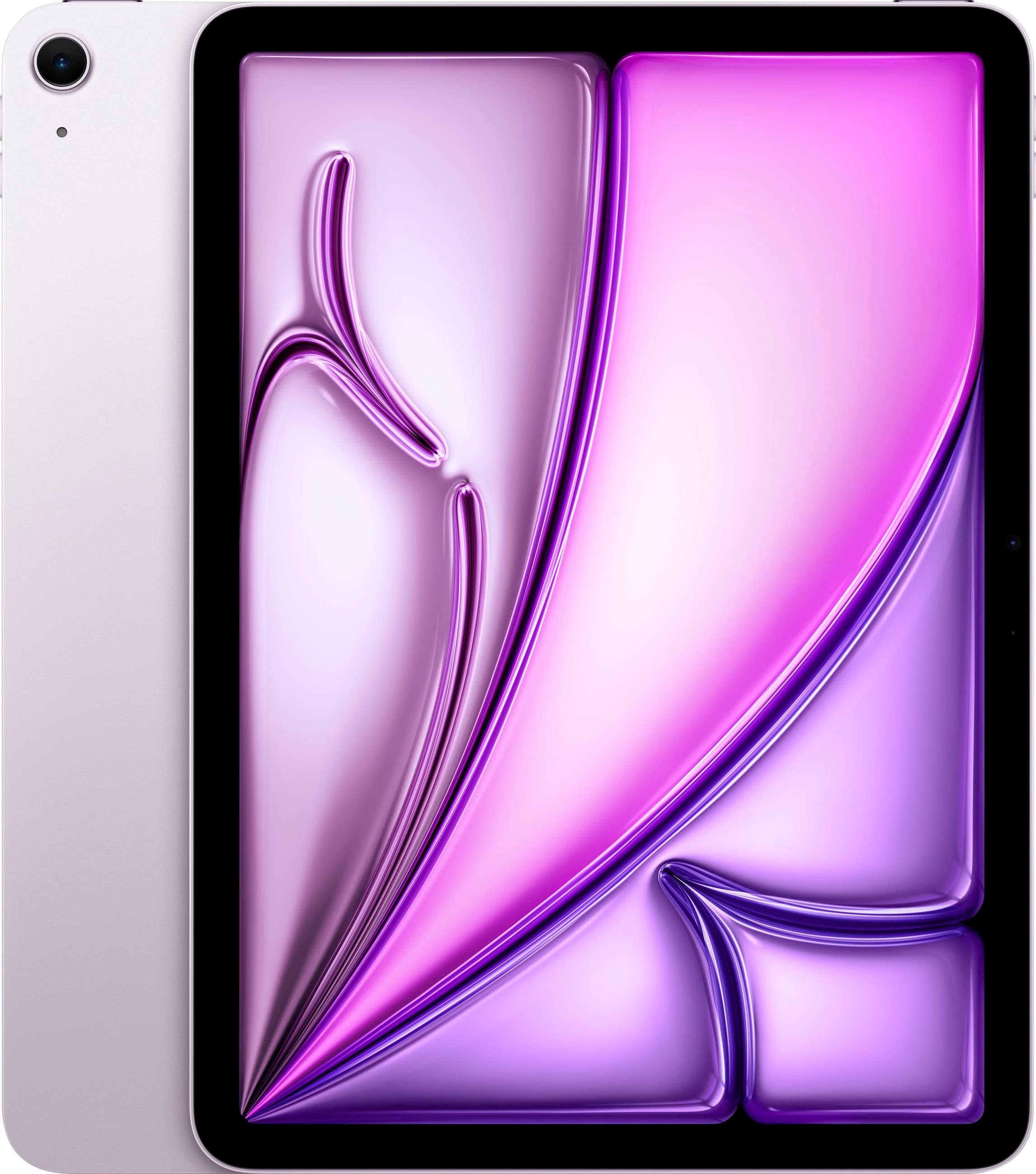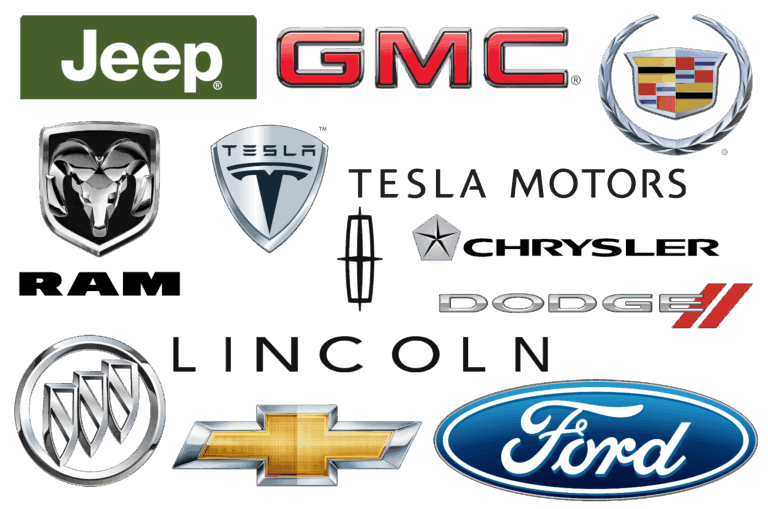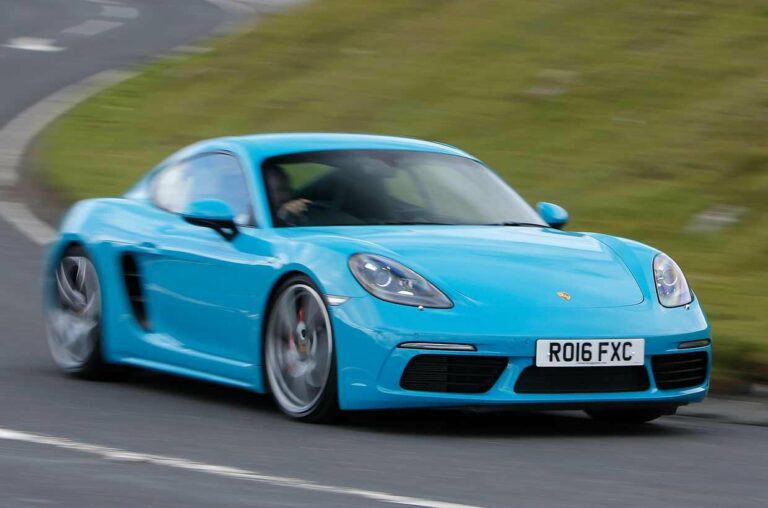Best Car Brands For Used Cars: A Comprehensive Guide to Smart Second-Hand Buys
Best Car Brands For Used Cars: A Comprehensive Guide to Smart Second-Hand Buys cars.truckstrend.com
Buying a used car is often hailed as one of the smartest financial decisions a driver can make. Unlike new vehicles that shed a significant portion of their value the moment they leave the dealership lot, used cars offer a fantastic opportunity to get more car for your money. However, the world of pre-owned vehicles can be a minefield of choices, and not all brands are created equal when it comes to long-term reliability, maintenance costs, and overall value retention.
Choosing the best car brands for used cars isn’t just about finding a good deal on the sticker price; it’s about investing in a vehicle that will serve you reliably for years to come, without breaking the bank on unexpected repairs or losing a significant chunk of its value upon resale. The "best" brands are those that consistently demonstrate strong build quality, readily available and affordable parts, a reputation for durability, and a healthy resale market. This comprehensive guide will delve into these top brands, explain why they stand out, and provide actionable advice to help you navigate the used car market with confidence.
Best Car Brands For Used Cars: A Comprehensive Guide to Smart Second-Hand Buys
The Pillars of Reliability: Japanese Giants
When it comes to long-term dependability and low ownership costs, Japanese car manufacturers consistently top the charts. Their engineering philosophy often prioritizes robust mechanics, meticulous quality control, and a focus on practical longevity.
1. Toyota: The Unquestioned Champion of Durability
Toyota’s reputation for bulletproof reliability is legendary, and it’s a reputation well-earned. Toyota vehicles are often lauded for their ability to rack up hundreds of thousands of miles with minimal issues, making them an ideal choice for the used car market.
- Why they’re great for used cars:
- Exceptional Reliability: Few brands match Toyota’s consistent track record for mechanical soundness.
- Low Maintenance Costs: Parts are widely available and generally affordable, and their simple, proven designs mean fewer complex repairs.
- High Resale Value: Toyotas hold their value exceptionally well, meaning your investment depreciates slower.
- Versatile Lineup: From the fuel-efficient Corolla and Camry sedans to the incredibly popular RAV4 and Highlander SUVs, there’s a Toyota for almost every need. Even their trucks, like the Tacoma and Tundra, are known for their longevity.

- Practical Advice: Look for well-maintained models like the Camry (mid-size sedan), Corolla (compact sedan), RAV4 (compact SUV), and Highlander (mid-size SUV). Hybrid versions (e.g., Prius, Camry Hybrid, RAV4 Hybrid) are also excellent for fuel economy but ensure the hybrid battery has been checked if it’s an older model.

2. Honda: Dynamic Dependability with a Sporting Edge
Honda stands shoulder-to-shoulder with Toyota in terms of reliability and value. While equally dependable, Hondas often offer a slightly more engaging driving experience, with responsive engines and refined handling.
- Why they’re great for used cars:
- Robust Engines & Transmissions: Honda’s powertrains are renowned for their longevity and efficiency.
- Excellent Fuel Economy: Many Honda models deliver class-leading fuel efficiency, keeping running costs low.
- Strong Resale Value: Like Toyota, Hondas retain their value very well.
- Driver-Friendly: Often praised for intuitive layouts and comfortable interiors.
- Practical Advice: The Civic (compact car) and Accord (mid-size sedan) are perennial favorites. For SUVs, the CR-V (compact SUV) and Pilot (mid-size SUV) are highly recommended. Older Odyssey minivans also offer great family value.

3. Subaru: All-Weather Confidence and Enduring Value
Subaru has carved out a niche with its standard Symmetrical All-Wheel Drive (AWD) system across most of its lineup (excluding the BRZ). This makes them an excellent choice for those living in areas with challenging weather conditions or who enjoy outdoor activities.
- Why they’re great for used cars:
- Standard AWD: Provides superior traction and stability in rain, snow, and light off-road conditions.
- Strong Safety Ratings: Subaru consistently earns top safety scores.
- Loyal Fanbase & Good Resale: Owners tend to be very satisfied, contributing to strong demand and value retention.
- Practicality: Models like the Outback and Forester offer excellent cargo space and versatility.
- Practical Advice: The Outback (wagon/crossover), Forester (compact SUV), and Impreza (compact car) are solid used picks. Be aware that older Subaru models (pre-2010 especially) might have a reputation for head gasket issues, so a thorough pre-purchase inspection is crucial for these specific years. Newer models have largely resolved these concerns.
4. Mazda: Understated Quality and Engaging Drives
Often overlooked in favor of its larger Japanese counterparts, Mazda has quietly built a reputation for producing cars that are fun to drive, stylish, and surprisingly reliable. They offer a premium feel without the premium price tag.
- Why they’re great for used cars:
- "Zoom-Zoom" Driving Dynamics: Mazdas are known for their responsive steering and enjoyable handling.
- Above-Average Reliability: Modern Mazdas, particularly those with Skyactiv technology, are proving to be very dependable.
- Stylish Design: Their Kodo design language gives them an upscale look that often belies their price.
- Good Value: They tend to be more affordable on the used market than equivalent Toyotas or Hondas, offering excellent bang for your buck.
- Practical Advice: Look for the Mazda3 (compact car), Mazda6 (mid-size sedan), and CX-5 (compact SUV). These models offer a great blend of efficiency, style, and reliability.
The Practical and Dependable: Korean Contenders
Hyundai and Kia, once considered budget alternatives, have made incredible strides in quality, design, and reliability over the last two decades. They now stand as formidable competitors, offering feature-rich vehicles at competitive prices, with improving long-term durability.
5. Hyundai: Value, Features, and Improving Reliability
Hyundai has transformed its image, now offering sophisticated designs, abundant features, and a commitment to quality that translates well to the used market.
- Why they’re great for used cars:
- Feature-Rich: Often come with more standard features than competitors in the same price range.
- Improving Reliability: Hyundai’s quality has significantly improved, leading to better long-term reliability.
- Attractive Styling: Modern Hyundai vehicles boast contemporary and appealing designs.
- Strong Value: They often offer a lot of car for the money on the used market.
- Practical Advice: Consider the Elantra (compact sedan), Sonata (mid-size sedan), and Santa Fe (mid-size SUV). Look for models from 2015 onwards for the best improvements in quality and features.
6. Kia: Style, Warranty (for CPO), and Growing Confidence
Sharing platforms and engineering with Hyundai, Kia has likewise seen a dramatic rise in quality and appeal. They often push the boundaries with bold, distinctive designs.
- Why they’re great for used cars:
- Distinctive Styling: Kia’s designs are often more adventurous and eye-catching.
- Excellent Value Proposition: Offer a strong combination of features, style, and practicality for the price.
- Improved Reliability: Mirroring Hyundai, Kia’s reliability has soared.
- CPO Benefits: For certified pre-owned (CPO) Kia vehicles, the remainder of their original 10-year/100,000-mile powertrain warranty can be a huge selling point.
- Practical Advice: The Forte (compact car), Optima (mid-size sedan), and Sorento (mid-size SUV) are popular choices. As with Hyundai, newer models (2015+) generally offer better long-term prospects.
American Workhorses and Value Picks
American manufacturers have also upped their game significantly, especially in the truck and SUV segments. While some past models might have had reliability hiccups, recent years have seen considerable improvements, making specific models excellent used buys.
7. Ford: The Pickup King and Practical SUVs
Ford boasts a massive lineup, but its trucks and SUVs are particularly strong contenders in the used market due to their durability and widespread parts availability.
- Why they’re great for used cars:
- Legendary Trucks: The F-150 is consistently America’s best-selling vehicle for a reason – it’s tough, reliable, and holds its value.
- Widespread Parts & Service: Ford’s vast dealer network and aftermarket support mean repairs are generally straightforward and parts are easy to find.
- Diverse SUV Lineup: Models like the Escape and Explorer offer practical family transport.
- Practical Advice: The F-150 is a no-brainer if you need a truck. For SUVs, the Escape (compact SUV) and Explorer (mid-size SUV) are solid choices, especially from 2016 onwards as reliability improved. Research specific model years for known issues.
8. Chevrolet: Robust Trucks and Value-Oriented SUVs
Similar to Ford, Chevrolet excels in the truck and SUV categories, offering strong, capable vehicles that stand up well to long-term use.
- Why they’re great for used cars:
- Durable Trucks & SUVs: The Silverado pickup and Tahoe/Suburban SUVs are known for their robust construction and longevity.
- Large Dealer Network: Easy access to parts and service.
- Good Value: Often available at competitive prices on the used market.
- Practical Advice: The Silverado (pickup truck), Equinox (compact SUV), and Traverse (mid-size SUV) are good considerations. Again, focus on newer model years (2015+) for improved overall quality.
The European Exception: Value in Specific Models
European brands, while offering sophisticated engineering and luxurious touches, can sometimes come with higher maintenance costs. However, some specific models, particularly from Volkswagen, can offer excellent value on the used market.
9. Volkswagen: German Engineering at a Discount
Volkswagen offers a blend of German engineering, solid build quality, and a refined driving experience. While they might not match Japanese brands for sheer low cost of ownership, they can be great used buys if you know what to look for.
- Why they’re great for used cars:
- Solid Build Quality: Interiors often feel more upscale than their price suggests.
- Engaging Drive: Many VWs offer a satisfying balance of comfort and handling.
- Good Value: They often depreciate faster than Japanese rivals, making them more affordable used.
- Practical Advice: The Jetta (compact sedan) and Golf (compact hatchback) are generally reliable choices, especially if they have a strong service history. Be prepared for potentially higher parts and labor costs compared to Japanese counterparts. A thorough pre-purchase inspection is paramount for any used European vehicle.
Key Considerations When Choosing a Used Car Brand
Beyond the brand itself, several factors influence a used car’s long-term value and your satisfaction.
- Reliability & Durability: This is paramount. Does the brand have a history of producing vehicles that last and don’t suffer from widespread, expensive issues?
- Maintenance & Repair Costs: How expensive are parts and labor? Are specialized tools or diagnostics often required? Brands with readily available, affordable parts (like Toyota and Honda) will save you money in the long run.
- Resale Value: While you’re buying used, thinking about future resale is wise. Brands that hold their value well minimize your total cost of ownership.
- Fuel Efficiency: A major ongoing expense. Consider the vehicle’s MPG and your typical driving habits.
- Safety Features: Modern safety tech (ABS, airbags, stability control, and increasingly, advanced driver-assistance systems) can vary significantly by brand and model year.
- Parts Availability & Aftermarket Support: Can you easily find replacement parts, both OEM and aftermarket? Is there a strong network of independent mechanics familiar with the brand?
- Common Issues for Specific Models/Years: Even the best brands can have a "lemon" year or model. Always research specific model years for known problems (e.g., transmission issues, engine recalls).
- Insurance Costs: Premiums can vary based on the car’s make, model, safety ratings, and repair costs.
Tips for Buying the Best Used Car
Finding the right brand is the first step; securing the right vehicle from that brand requires diligence.
- Research Thoroughly: Once you’ve narrowed down brands, research specific models and model years. Look for consumer reviews, reliability ratings (e.g., Consumer Reports, J.D. Power), and common complaints.
- Set a Realistic Budget: This includes not just the purchase price but also estimated costs for insurance, registration, and potential immediate repairs or maintenance.
- Obtain a Vehicle History Report: Services like CarFax or AutoCheck provide crucial information on a car’s past, including accident history, service records, ownership changes, and title issues (salvage, flood, etc.).
- Get a Pre-Purchase Inspection (PPI): This is non-negotiable. Have an independent, trusted mechanic (not one affiliated with the seller) inspect the vehicle thoroughly before you buy. They can spot issues that aren’t obvious to the untrained eye.
- Test Drive Extensively: Drive the car in various conditions: city streets, highways, hills, and during braking. Listen for unusual noises, feel for vibrations, and check all controls (AC, radio, windows, lights).
- Check for Recalls: Use the VIN to check the NHTSA website for any open recalls that haven’t been addressed.
- Negotiate Smartly: Be prepared to negotiate the price. Use any issues found during the PPI as leverage.
- Understand Certified Pre-Owned (CPO) Vehicles: CPO cars are often newer, lower mileage used cars sold by dealerships, backed by a manufacturer’s warranty and having undergone a rigorous inspection. They cost more than regular used cars but offer peace of mind.
Table of Best Car Brands for Used Cars: General Price & Value Trends
This table provides a general overview of popular models from the recommended brands, along with typical used price ranges and general value retention trends. Please note: Prices vary wildly based on model year, mileage, condition, trim level, location, and market demand. This table serves as a broad guideline for models roughly 3-7 years old in good condition.
| Brand | Representative Models (Used, Popular) | Typical Used Price Range (Approx. 3-7 years old) | General Value Retention / Depreciation Trend | Notes & Key Strengths for Used Buyers |
|---|---|---|---|---|
| Toyota | Camry, Corolla, RAV4, Highlander | $15,000 – $38,000+ | Excellent (Very Slow Depreciation) | Unmatched reliability, lowest long-term ownership costs, vast parts availability. A top-tier choice. |
| Honda | Civic, Accord, CR-V, Pilot | $14,000 – $35,000+ | Excellent (Very Slow Depreciation) | Highly reliable engines, good fuel economy, engaging to drive, strong resale. |
| Subaru | Outback, Forester, Impreza | $16,000 – $32,000+ | Very Good (Steady Depreciation) | Standard AWD, strong safety, great for all climates. Check older models for head gasket history. |
| Mazda | Mazda3, CX-5, Mazda6 | $12,000 – $28,000+ | Good (Better than Average) | Engaging driving dynamics, premium feel for the price, improving reliability. Often underrated. |
| Hyundai | Elantra, Sonata, Santa Fe | $10,000 – $30,000+ | Good (Improving) | Feature-rich, stylish designs, significantly improved reliability from 2015+. Good value proposition. |
| Kia | Forte, Optima, Sorento | $9,000 – $29,000+ | Good (Improving) | Bold designs, excellent features for the money, strong reliability improvements. CPO often includes warranty. |
| Ford | F-150, Escape, Explorer | $12,000 – $45,000+ (F-150 higher) | Moderate to Good (Model Dependent) | F-150 is a powerhouse; SUVs are practical. Widespread parts and service network. Research specific models. |
| Chevrolet | Silverado, Equinox, Traverse | $11,000 – $42,000+ (Silverado higher) | Moderate to Good (Model Dependent) | Durable trucks and SUVs, extensive dealer network. Value-oriented with solid performance. |
| Volkswagen | Jetta, Golf, Tiguan | $8,000 – $25,000+ | Moderate (Can be good value used) | Solid build quality, refined ride. Can offer great value due to faster initial depreciation. PPI essential. |
| Volvo | S60, XC60, XC90 | $18,000 – $40,000+ | Moderate to Good (Initial faster depreciation) | Excellent safety, comfortable and stylish. Parts/labor can be pricier, but used models offer luxury for less. |
Frequently Asked Questions (FAQ)
Q1: What’s the single most important factor when buying a used car?
A1: Reliability, closely followed by a thorough pre-purchase inspection (PPI) by an independent mechanic. Even the best brands can have an individual vehicle with hidden issues. The PPI helps uncover these before you buy.
Q2: Are luxury brands (BMW, Mercedes-Benz, Audi, Lexus) good for used cars?
A2: Lexus (Toyota’s luxury brand) is generally an excellent choice for used luxury due to its strong reliability. Other European luxury brands (BMW, Mercedes, Audi) often depreciate quickly, making them tempting. However, their maintenance and repair costs can be significantly higher due to specialized parts, complex electronics, and higher labor rates. Buy these only if you have a larger budget for potential upkeep and a trusted mechanic who specializes in the brand.
Q3: Should I buy a Certified Pre-Owned (CPO) vehicle?
A3: CPO vehicles are generally newer, lower-mileage used cars sold by dealerships, backed by an extended manufacturer warranty and having undergone a multi-point inspection. They cost more than regular used cars but offer greater peace of mind, often including roadside assistance and special financing rates. If your budget allows for the premium, CPO can be a smart choice, especially for brands with a slightly less stellar used reliability record.
Q4: How many miles are too many for a used car?
A4: There’s no magic number. A well-maintained car with 150,000 miles from a reliable brand like Toyota or Honda can be a better buy than a poorly maintained one with 70,000 miles from a less reliable brand. Focus on service history, evidence of regular maintenance, and the results of a PPI rather than just mileage.
Q5: Is it always cheaper to maintain a used car from a "best" brand?
A5: Generally, yes. Brands known for reliability (like Toyota, Honda, Mazda) tend to have more affordable parts, are easier for mechanics to work on (due to commonality and simpler designs), and break down less frequently. However, no car is maintenance-free. Regular oil changes, tire rotations, and fluid checks are essential for any vehicle.
Q6: What’s the best time of year to buy a used car?
A6: While not a strict rule, you might find better deals at the end of the month, quarter, or year when dealerships are trying to meet sales targets. Holidays (like Black Friday or around Christmas) can also see special promotions. When new model years are released (typically late summer/early fall), the previous year’s models often become available as used cars, increasing supply.
Conclusion
Navigating the used car market can feel daunting, but by focusing on the best car brands for used cars, you significantly increase your chances of a successful and satisfying purchase. Brands like Toyota, Honda, Subaru, and Mazda consistently deliver on reliability, low ownership costs, and strong resale value, making them prime candidates for your next pre-owned vehicle. Hyundai and Kia offer compelling value and increasingly impressive reliability. Even American mainstays like Ford and Chevrolet, particularly their trucks and SUVs, can be excellent choices.
Remember that while brand reputation is a strong guide, individual vehicle condition is paramount. Always combine your brand research with diligent inspection, a thorough test drive, and a non-negotiable pre-purchase inspection. By following these guidelines, you’ll be well-equipped to make an informed decision and drive away with a reliable, value-packed used car that serves you well for years to come.





